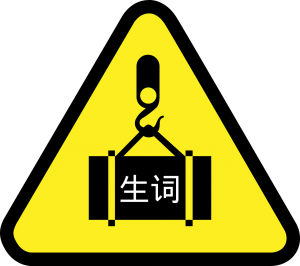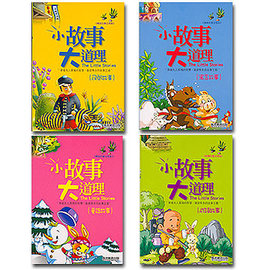 Learning words is important. It could even be argued that it’s more important than anything else when learning a foreign language. Without words, you can’t really do much, but with the right words (or perhaps the best words) you can get far, even if your grammar, pronunciation or general fluency is lacking.
Learning words is important. It could even be argued that it’s more important than anything else when learning a foreign language. Without words, you can’t really do much, but with the right words (or perhaps the best words) you can get far, even if your grammar, pronunciation or general fluency is lacking.
Realising that this is the case, many learners increase the number of words they want to learn, only to run into a problem: they don’t have time to learn them all.
In this week’s article, I will discuss the problem of having too many words to learn from different angles. My hope is that one of them, or perhaps more likely a combination of several, will help you overcome this problem!
You’re adding too many new words
I remember when I read my first book in Chinese. It was called 小故事大道理 and was written for kids. It has large, friendly characters and phonetic transcription for all characters. I added roughly 700 words from that book to my growing list of flashcards.
 Bad move! Most of these words were completely useless. If you want to make the most of your vocabulary learning, you have to make sure that you’re learning the right words! Think about this for a while:
Bad move! Most of these words were completely useless. If you want to make the most of your vocabulary learning, you have to make sure that you’re learning the right words! Think about this for a while:
Learning a less common or less useful word stops you from learning a more common and more useful one.
Your time is limited, so you can’t learn all the words, at least not at once. Therefore, it’s extremely important that you understand that spending time learning things you don’t need is very bad! Not only will you not improve much, it will also take time from learning other, more useful things. I’ve written more about which words to learn:
Which words you should learn and where to find them
I won’t repeat what I wrote in that article, but I will highlight some other things I’ve been made aware of through user comments and questions.
Learning is not only measured in new words acquired
Some people seem to think that the main reason you have a tutor or go to class is so that you can learn new words. This is a big waste of resources! You should learn the basics of words (how they are written, what they mean and so on) before you even go to class. Your teacher should help you do things you can’t do on your own, such as practising how to use the words, helping you fix your pronunciation or provide you with comprehensible input that helps you internalise the words. If you feel that your review queue just gets longer and longer after each session, just stop adding words! Focus on what you have already studied: consolidate.
Another way to decrease the amount of new words you’re learning while still learning in an efficient and meaningful way is to shift the focus from intensive to extensive studying. Most courses only focus on the former, where you study chapters in a book where there are many, many new words per text, sometimes even more than one per sentence. Instead, read material where you understand almost everything.
This will allow you to consolidate what you know, strengthen the knowledge you have about words and also make it relatively easy to learn the few new words you encounter. Graded readers is a good place to start, check out Mandarin Companion or Chinese Breeze. The more advanced your Chinese is, the easier this becomes, of course.
You don’t spend enough time
One of the most likely reasons you’re unable to learn all the words you want is of course that you don’t spend enough time learning them. This is a matter both of how much you study Chinese in general and how high a priority you put on learning vocabulary.
Here are some suggestions for spending more time with vocabulary without it having too big an impact on everything else you do:
- Use an app with spaced repetition – I’ve put this in the “more time” category because it’s extremely useful to have all your flashcards with you at all times. Naturally, this is also more efficient for other reasons (see my article about spaced repetition). I recommend Anki, Pleco or Skritter.
- Spread it out in time (and space) – Review whenever you have a moment’s break from whatever else you’re doing: in the queue in the grocery store, when waiting for the lift, on the bus, in the bathroom, and so on. Read my article about the time barrel to understand better why you have much more time than you think.
So, how much time should you spend? That’s a very difficult question, but personally, I’ve spent anything from 20 minutes up to two hours per day when studying full-time. I’ve learnt in excess of 50 words per day for extended periods, and even did an experiment trying to learn 2000 words in five days.
It’s very hard to give concrete guidelines, but I would say that vocabulary learning should still take up no more than perhaps 20% of your studying. If you have context-heavy flashcards (sentences, paragraphs), you can increase that a bit since you’re essentially practising reading as well. The rest of the time should be spent engaging the language in various ways, including listening, speaking, reading and writing.
You don’t learn efficiently
Time spent is only one part of the equation; the other part is how efficient your method is. I will not go through in detail how to learn characters and words efficiently in this article, but make sure you stay away from the worst ways of learning:
- Blind repetition without understanding
- Reviewing the same thing many times in a row
- Not using flashcards and spaced repetition software
- Treating Chinese characters as pictures
- Not learning about phonetic components
If you want more about vocabulary in general, check this category of articles. I have also covered vocabulary in more depth in my course.
You add too many flashcards per word
If you use Anki or any other program where you can customise your flashcards and review in any manner you like, you will soon realise that you can’t add all possible combinations. Even if we’re talking about learning a simple noun, you still have at least three things to learn: characters, pronunciation and meaning. That creates six possible combinations of two (what to put on the front of the flashcard and what to put on the back).
It should be obvious that if you add six flashcards for every word you learn, you won’t get very far. The key here is to settle on a routine that works for you and then be flexible depending on why you want to learn a word. For example, for a long time, I used flashcards mainly to boost understanding, meaning that I did mostly character recognition (and some audio recognition). I then spent the rest of the time using the language.
However, if you’re not in an immersion environment or want to boost your active knowledge, it makes more sense to create flashcards that encourage you to be more active, such as translation from your native language or fill-in-the-gap tests.
What kinds of flashcards you choose depends on the word itself and your reason for adding it. I think most students use two flashcards per word (one recognition of some sort and one recall of some sort); I would be very careful with going beyond that! I’ve written more about this here:
Flashcard overflow: About card models and review directions
Conclusion
This article covers most of the problems I’ve have myself when it comes to having too many words to learn, along with most of the problems I have received questions about. Have I missed anything?
Personally, my main problems nowadays is almost exclusively that I don’t spend enough time. I’ve been fairly good at this recently, but since I don’t spend much time studying Chinese directly, learning and maintaining vocabulary is more difficult. I deal with this mostly by spreading things out, which is by far the best method if you have a busy schedule!

5 comments
Olle, you say to learn words from different angels – does that mean a direct path to the Almighty? ?
Just being silly. Thanks again for your great articles!
Yes, I thought I had mentioned that everything I do is divinely inspired? 🙂 Except my spelling, obviously. Fixed, thanks for letting me know!
Adding too many words is one of the few drawbacks of SRS. It is all too easy to just hit the little “+” (at least in Pleco) to every foreign word you come across. When you make paper flashcards you don’t want to go through that much hassle so you naturally pick the ones you think are most useful.
I’m thrilled to find your website! I wish I had known about it sooner. You pinpoint many of the issues I’ve had with classes, self study, Anki, etc. that I felt too busy to address. Thank you for sharing what you learned about learning Chinese as an adult.
Hi Rob! Welcome to the site and glad you find it useful! I started it because I felt so many of these things weren’t addressed properly.